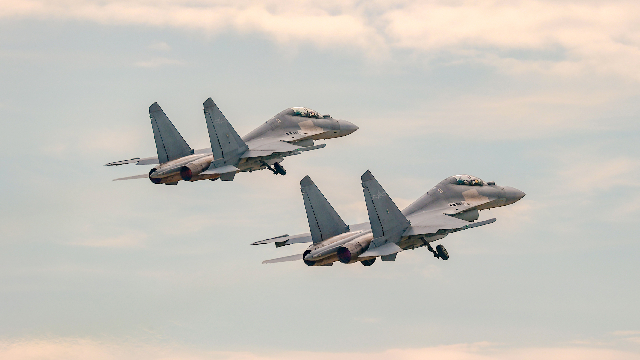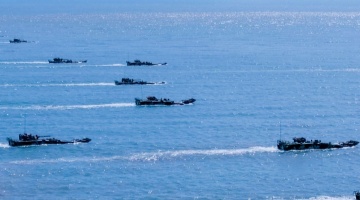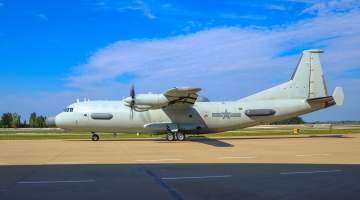By Ling Yunzhi
The Middle East has always been a key focus of the US' global strategy. Amid the escalating regional conflicts that continue to generate more spillovers, the US' act of providing Israel with the advanced Terminal High Altitude Area Defense (THAAD) system and deploying related military personnel is an unusual military action. This not only highlights the special and close relationship between the US and Israel, encouraging the latter to take more risky military actions, but also increases the concerns and unease of regional countries like Iran and Lebanon, further aggravating the already fragile security situation in the region and exacerbating the chaos in the Middle East.
The complexity of the situation in the Middle East is not only reflected in the Israel-Hamas conflict but also involves the power competition of other important forces in the region, particularly the confrontation with Iran after the spillover effects of security threats. For the US, its usual tactic is to maintain its hegemony by creating conflicts and confrontations. Thus, the deployment of the THAAD missile defense system seems to help Israel counter Iran, but, in reality, it aims to further expand US military dominance in the Middle East and even in the world.
From a practical perspective, as the regional situation continues to heat up, the US has consistently provided military support to Israel, though it verbally expressed its willingness to ease the tension by diplomatic means. According to reports, the US gives Israel at least US$3.8 billion in military aid annually. Since the outbreak of the latest round of the Israeli-Palestinian conflict last October, the Biden administration has authorized an additional US$14 billion in aid to Israel. According to the Pentagon, this is not the first time the US has deployed the THAAD missile defense system in the Middle East; the system was also deployed in Israel in 2019 for training and comprehensive air defense exercises. After the latest round of the Israeli-Palestinian conflict broke out, Lloyd Austin, US Defense Secretary, repeatedly instructed discussions on deploying the THAAD system and more Patriot air defense systems in Israel.
This recent announcement by the US to provide Israel with the THAAD system and send military personnel is part of a broader adjustment of US military force deployment plans in the Middle East over the past few months. It also marks the first time that the US has deployed troops to Israel since the latest round of the Israeli-Palestinian conflict, signaling a continuous escalation of US intervention in the Middle East and underscoring its firm commitment to Israel's defense. However, from a strategic perspective, its true goal is clearly not to ease tensions. For the US, the Middle East is merely a pawn in its global strategic game, and the so-called ensuring Israel's security is just an excuse. Its real purpose is to use this military support to strengthen Israel's position as its military proxy in the Middle East, further expand its military presence to control the region's oil resources, maintain strategic dominance, and curb the influence of other major powers there, thereby serving US global hegemony.
Since April this year, military conflicts between Israel and Iran have continuously escalated, with retaliatory and counter-retaliatory actions making the situation increasingly tense. In this context, the US' act of providing Israel with the THAAD system and deploying military personnel is akin to adding fuel to the fire, further intensifying conflicts and dragging the entire Middle East into an unprecedented military standoff.
In this situation, the US' provision of the advanced THAAD missile defense system to Israel is not only a provocation to countries including Iran and Lebanon but also an open threat to peace and stability in the Middle East. This could also plunge the US itself into ever-expanding regional conflicts. After providing Israel with the THAAD system, the US would also send nearly 100 military personnel to operate it, which means that the US is beginning to intervene in the Israel-Iran conflict with military force directly. This direct intervention puts US soldiers on the front lines of the threat posed by Iranian missiles, exposing them to greater security risks. If Iranian missiles strike US soldiers, or if pro-Iranian militias in Iraq or Syria cause US casualties, the US could be forced to directly engage in military action, which will further drag it into the regional conflict and make the security situation even more complicated and chaotic.
Editor's note: Originally published on thepaper.cn, this article is translated from Chinese into English and edited by the China Military Online. The information and opinions in this article do not necessarily reflect the views of eng.chinamil.com.cn.













